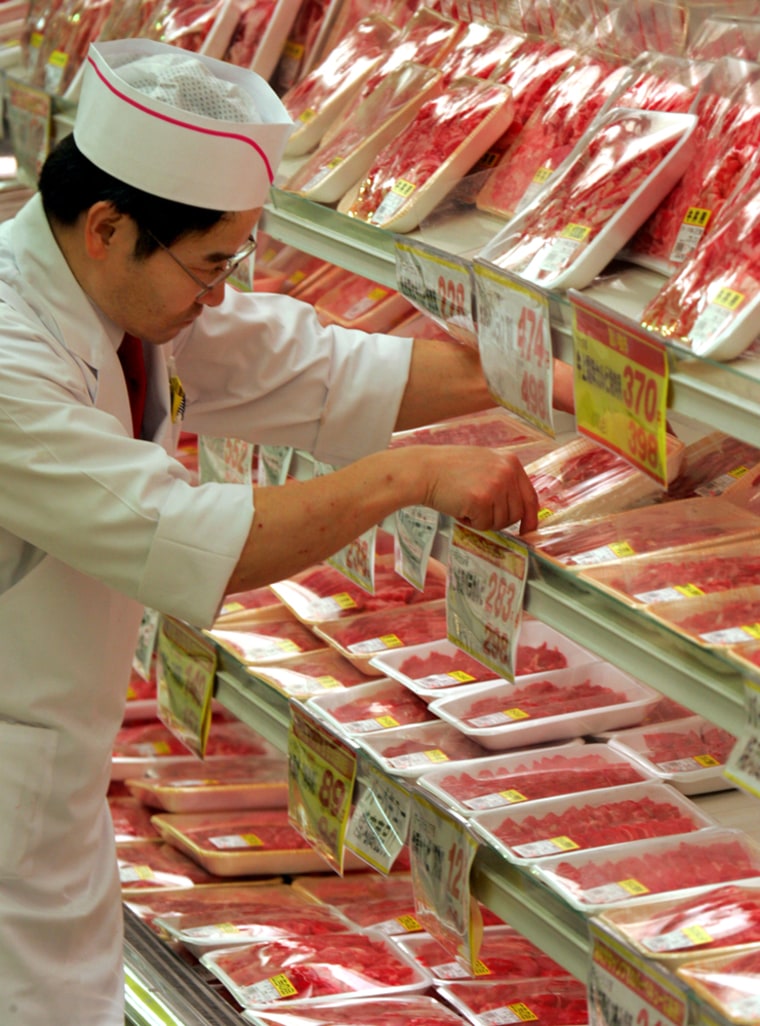Japan on Thursday announced the resumption of U.S. beef imports, ending a ban imposed over concerns about mad cow disease and removing a strain in relations with Washington.
The U.S. ambassador immediately welcomed the move, which reopens Japan’s lucrative market to a select list of U.S. meat exporters, saying that it resolved an issue of primary importance to the United States.
“We are pleased that Japanese auditors and officials have found our process to be sound, and we are proud that our system is scientifically based and exceeds internationals standards,” a statement from Ambassador Thomas Schieffer said.
The latest ban was imposed in January when Japanese inspectors checking a veal shipment found banned parts believed to be at risk for the illness. It was lifted after Japanese representatives toured U.S. facilities to ensure they met safety guidelines.
Mad cow disease — formally known as bovine spongiform encephalopathy, or BSE — is a degenerative nerve disease in cattle. In humans, eating meat contaminated with BSE is linked to variant Creutzfeldt-Jakob Disease, a rare and deadly nerve disease.
Health Minister Jiro Kawasaki announced the lifting of the ban after the Agriculture Ministry’s mad cow advisory committee approved a resumption in imports.
“We think it is possible to guarantee safety so long as the U.S. observes its export program to Japan,” Kawasaki told reporters. “We strongly hope that the U.S. will ensure compliance with the export program.” However, he said Japan would renew the ban if problems arise.
Japanese inspectors on Sunday returned from a monthlong tour of 35 facilities in the United States to evaluate whether they comply with safeguards against mad cow disease.
The government and importers will inspect all shipments to ensure that dangerous parts are not included, Kawasaki said. Officials inspected only part of shipments before the import ban.
At the White House, presidential spokesman Tony Snow greeted the decision “with satisfaction.”
“U.S. beef is safe. The prime minister had an opportunity to sample it during his trip to the United States on multiple occasions. And we look forward to seeing U.S. beef re-enter the Japanese marketplace,” Snow said.
Japanese beef importers said Thursday there is no sign their clients are rushing to place orders.
Japan was a huge consumer of U.S. beef before December 2003, when it imposed the original ban over concerns of possible mad cow disease — formally known as bovine spongiform encephalopathy, or BSE — among U.S. cattle.
The ban was lifted late last year, only to be reimposed in January after inspectors found prohibited animal parts in a veal shipment from New York.
